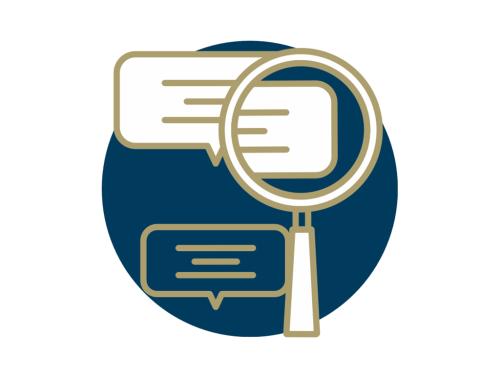Advice for the Biden-Harris Administration
Time-tested regulatory practices can help ensure evidence-based policies take diverse perspectives and information into account.


The GW Regulatory Studies Center scholars regularly conduct applied research to understand regulatory policy and practice from a public interest perspective. Our content often takes the form of public interest comments, formal testimony, working papers, policy insights, and short commentaries analyzing the most pressing issues in regulatory policy. View the rest of our material by the different types of publications listed on this page or our research areas.

Long-form publications intended for academic audiences that take a deep dive into a particular aspect of regulatory policy.

Scholarly analysis of the potential effects of particular rulemakings from federal agencies, and advice to Congress on how to improve the rulemaking process.

Short-form publications intended for all audiences which provide easy to access analysis of regulatory policy.

Formal publications, often completed with other leading organizations and individuals, providing a thorough understanding of regulations and the rulemaking process.

The weekly Regulation Digest contains everything you need to know about regulatory policy today, and our monthly Center Update gives you all of the latest from our team.
For accessible charts and supporting data that you can use in your own publications or presentations, visit the Reg Stats page.
Advice for the Biden-Harris Administration
Time-tested regulatory practices can help ensure evidence-based policies take diverse perspectives and information into account.
Congressional Review Act Update
Based on procedures within the Congressional Review Act, all regulations issued since August 11, 2020 may be undone by the new Congress in January.
Civil service reform is important, but one has to wonder why the Trump administration is undertaking it with only a few weeks left in the administration.
President Trump’s Midnight Regulatory Agenda
OIRA released its Fall 2020 Unified Agenda of Regulatory and Deregulatory Actions, marking the last Agenda to be published under the Trump administration.
The Midnight Regulation Phenomenon
It’s officially midnight in Washington, when an outgoing presidential administration rushes to complete its priorities before a new administration takes office.
Midnight in the Garden of Rules and Regulations
Midnight regulation is upon us and it may be more chaotic than usual because his administrators may be more rushed than in previous transitions.
